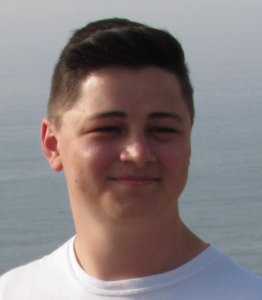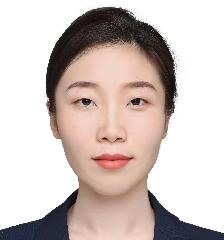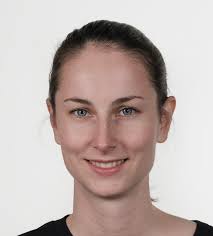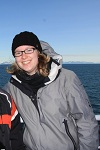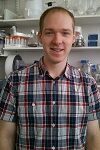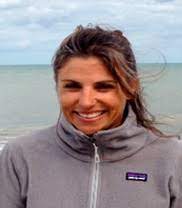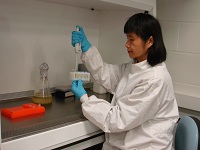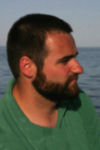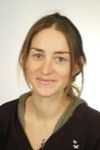Lab Alumni
Dr Amanda Hopes
Post-Doctoral Researcher
Email: a.hopes@uea.ac.uk
Biography
I finished my PhD in Thomas Mock’s group in 2017, working on developing new molecular tools for diatoms and investigating the function of a gene potentially involved in regulating silica metabolism in the polar diatom Fragilariopsis cylindrus. During this time, I developed a transformation system for F. cylindrus, CRISPR-Cas using a Golden-Gate approach for gene-editing in the model diatom Thalassiosira pseudonana and started development of an Inverse yeast 1-hybrid system for F. cylindrus.
Prior to my PhD I worked for a biotechnology company for four and half years as a researcher, developing molecular clinical diagnostic tools.
Following my PhD I started a short-term NRP Post-Doc investing protein regulation in T. pseudonana through ribosome profiling and adapting codon usage using CRISPR-driven homologous recombination developed in the Mock lab.
I have just started my second Post-Doc with Thomas researching the molecular underpinnings of adaptive evolution in polar diatoms.
Research Interests
Functional genomics; molecular biology; diatoms/algae; silica metabolism; gene and protein regulation, evolution, polar biology.
Awards
Outstanding Poster Award at the 'Molecular Life of Diatoms' conference 2021.
Publications
Hopes, A., Nekrasov, V., Belshaw, N., Grouneva, I., Kamoun, S., Mock, T. 2017. Genome Editing in Diatoms Using CRISPR-Cas to Induce Precise Bi- allelic Deletions. Bio-protocol, 7(23).
Hopes, A., Thomas, D.N. and Mock, T., 2017. Polar Microalgae: Functional Genomics, Physiology, and the Environment. In Psychrophiles: From Biodiversity to Biotechnology (pp. 305-344). Springer International Publishing.
Hopes, A., Nekrasov, V., Kamoun, S. and Mock, T., 2016. Editing of the urease gene by CRISPR-Cas in the diatom Thalassiosira pseudonana. Plant methods, 12(1), p.49.
Hopes A., Mock, T. 2015. Evolution of Microalgae and Their Adaptations in Different Marine Ecosystems. eLS (DOI: 10.1002/9780470015902.a0023744).
Hopes A. & Mock T. (2014) Diatoms: Glass-dwelling dynamos. Microbiology Today :41(1), 20-23.
Amanda has accepted (August 2024) a PostDoc position in the School of Biology at UEA.
Reuben Gilbertson
Ph.D. Student (The Leverhulme Trust)
Email: r.gilbertson@uea.ac.uk
Primary Supervisor: Professor Thomas Mock
Secondary Supervisor: Professor Cock van Oosterhout
Team member: Dr. Amanda Hopes
Biography
I graduated from the University of North Carolina Wilmington (UNCW), in July 2017 with a degree in Marine Biology. During my undergraduate studies at UNCW, I served as a research intern at the Sea Turtle Protection Program, Bald Head Island, North Carolina, where I studied epibiotic communities on the carapaces of nesting sea turtles. As an undergraduate, I became increasingly fascinated in marine phytoplankton, specifically diatoms, and their ability to adapt to different environmental conditions. Following graduation I returned home to the UK, working first as Research Assistant within a team at the University of Cambridge studying gene expression and methylation patterns in neonatal and adult stem cells. I then moved to begin my graduate studies at UEA where I am currently in the first year studying for my PhD with Professor Mock. The focus of my research is the use of reverse gene editing methods to further understand the adaptive evolution of the model polar diatom Fragilariopsis cylindrus.
Awards
2nd best Poster Award at the 7th European Phycological Congress in Zagreb 2019.
Research Interests
Diatoms, genome editing, polar science, adaptive evolution, genomics, molecular biology
Reuben has accepted (May 2024) a civil service position at Cefas as a Fisheries Genomics Scientist.
Haoyu Jin
Visiting PhD Student (CSC Funded Scholar)
Email: H.Jin@uea.ac.uk
Primary Supervisor: Professor Thomas Mock
Secondary Supervisor: Professor Huiwang Gao (OUC)
Biography
I have completed my BSc at Xi’an University of Architecture and Technology (China) and then started biogeochemical research as a MSc and PhD student at the Ocean University of China (OUC). In my Ph.D. project at OUC, I mainly worked on the impact of atmospheric deposition on phytoplankton growth and utilization of dissolved organic phosphorus (DOP) in China Coastal Seas through on-board microcosm experiments. In my visiting Ph.D. project at UEA, I will apply bioinformatics tools and cell model analyses to study the impact of atmospheric deposition on DOP utilization and related gene expression in microbial communities of the global ocean.
Research interests
Oceans, DOP, Phytoplankton, Biogeochemical Cycles, Meta-omics
Publications
Haoyu Jin, Chao Zhang, Siyu Meng, Qin Wang, Xiaokun Ding, Ling Meng, Yunyun Zhuang, Xiaohong Yao, Yang Gao, Feng Shi, Thomas Mock, Huiwang Gao (2024) Atmospheric deposition and river runoff stimulate the utilization of dissolved organic phosphorous in coastal seas. Nature Communications (https://www.nature.com/articles/s41467-024-44838-7)
Haoyu has gone back to OUC in Qingdao to prepare for his PhD defence. He is looking for a PostDoc position worldwide.
Lulu Wang
Visiting PhD Student (CSC Funded Scholar)
Email: kgc22ssu@uea.ac.uk
Primary Supervisor: Professor Thomas Mock
Biography
I started my Postgraduate and Doctoral Program at Ocean University of China (OUC) in 2016, majoring in hydrobiology. During this time, I have conducted research on the hemostatic ability of diatom frustules (Thalassiosira weissflogii, Thalassiosira sp., Cyclotella cryptica, Cocconeiopsis orthoneoides, Navicula avium, Navicula sp., and Pleurosigma indicum) which can be utilized as a natural bio-silica material. I found that the unique physical properties of frustule (specific surface area, size, pore diameter) would influence its ability to concentrate coagulation components and activate the coagulation cascade pathway, and therefore play an important role in determining its hemostatic properties. Thus, I tried to manipulate morphology of C. cryptica frustule through regulating CcSAP3 expression (gene over expression and RNA antisense).
Following this, I became interested in the synthesis of diatom cell wall. I began my studies in Mock lab in June 2022, and my research aims to find new genes/proteins regulating T. pseudonana cell size through RNA-seq and verify their function using CRISPR-CAS.
Research interests
Diatoms, diatom cell wall (frustule), biomineralization, silica metabolism
Publications
Wang L, Pan K, Li J, Li Y, Zhu B, Wang Y, Feng C, Han J. Influence of the physicochemical characteristics of diatom frustules on hemorrhage control. Biomater Sci. 2019 Apr 23;7(5):1833-1841. doi: 10.1039/c9bm00099b.
Wang L, Pan K, Zhang L, Zhou C, Li Y, Zhu B, Han J. Tentative identification of key factors determining the hemostatic efficiency of diatom frustule. Biomater Sci. 2021 Jan 26. doi: 10.1039/d0bm02002h.
Dr Lulu Wang currently is a PostDoc at a University in China
Emma Langan
PhD Student (NERC)
Email: emma.langan@uea.ac.uk
Primary Supervisor: Professor Thomas Mock
Secondary Supervisors: Dr Richard Leggett (The Earlham Institute)
Professor Vincent Moulton (School of Computing)
Dr Clara Manno (British Antarctic Survey)
Biography
I studied Infectious Diseases with a focus on microbiology at the University of Edinburgh and graduated in 2015. My honours project was genetic identification of zoonotic trypanosomiasis strains in cattle, which sparked my interest in genomics and bioinformatics. I completed an MSc in Bioinformatics, also at the University of Edinburgh, in 2017. My MSc research project mainly involved genome assembly and analysis, I also created a genomic database and browser and performed DNA sequencing using the Nanopore MinION portable real-time long read sequencer. In October 2017 I moved to Norwich to begin a PhD at the UEA. My project is focussed on using the Nanopore MinION for real-time metagenomic sequencing of polar ocean samples to monitor polar microbe populations.
Anthony Duncan
PhD Student (NERC)
Email: A.Duncan@uea.ac.uk
Primary Supervisor: Professor Vincent Moulton (School of Computing)
Secondary Supervisors: Professor Thomas Mock
Dr Richard Leggett (The Earlham Institute)
Biography
I am PhD student in the School of Computing Science researching and applying computational techniques to help understand complex metagenomics data, with a particular interest in genome-resolved metagenomics and polar microbe communities. My undergraduate studies were in American and English literature also at UEA completed in 2009. I later returned to study after about a decade, completing an MSc in Computer Science where my dissertation project involving methods of phylogenetic tree construction kindled and interest in computational biology. To date my research has included generating some of the first eukaryotic metagenomic-assembled genomes for ocean microbes, and investigating the application of unsupervised machine learning techniques to functional profiles of ocean microbe communities.
Research interests: Bioinformatics, data science, metagenomics and metagenomic assembly (e.g. MAGs), marine microbiology
Publications
Anthony Duncan, Kerrie Barry, Chris Daum, Emiley Eloe-Fadrosh, Simon Roux, Susannah Tringe, Katrin Schmidt, Klaus Ulrich Valentin, Neha Varghese, Igor V Grigoriev, Richard Mark Leggett, Vincent Moulton, Thomas Mock (2020) Metagenome-assembled genomes of phytoplankton communities across the Arctic Circle. Microbiome (https://microbiomejournal.biomedcentral.com/articles/10.1186/s40168-022-01254-7)
Anthony currently works as a PostDoc in the group of FALK HILDEBRAND
Monica Pichler
Ph.D. Student (NRPDTP)
Email: M.Pichler@uea.ac.uk
Primary Supervisor: Professor Thomas Mock
Secondary Supervisor: Dr Nicola Patron (The Earlham Institute)
Team members: Dr. Amanda Hopes
Biography
I have completed my Master in Geobiology and Paleobiology, with an emphasis on Geomicrobiology, at the University of Munich. Through my research projects I have gained experience in high-throughput sequencing and bioinformatics for bacterial and eukaryotic diversity studies. For my PhD project at UEA, I apply ribosome profiling to reveal how temperature, which is one of the most important growth factors, affects translation in diatoms. Furthermore, I use CRISPR/Cas9 in combination with ribosome profiling to provide insights how codon usage, tRNA abundance and tRNA- derived small non-coding RNAs impact protein synthesis in the model diatom Thalassiosira pseudonana under changing environmental conditions.
Publications
Pichler M et al., 2018. A 16S rRNA gene sequencing and analysis protocol for the Illumina MiniSeq platform. Microbiology Open https://onlinelibrary.wiley.com/doi/abs/10.1002/mbo3.611
Pichler M et al. 2023. Ribosome profiling in the model diatom Thalassiosira pseudonana. Current Protocols 3, e843.
Dr Monica Pichler currently works as a technician in the group of Andras Simon
Katrin Schmidt
PhD Student
Primary Supervisor: Prof Thomas Mock
I obtained a degree in marine biology from the University of Groningen where I was working on different projects ranging from marine viruses, organic matter fluxes and anti-freeze proteins in polar diatoms. During my undergraduate and graduate studies I develop a high interest in marine phytoplankton with focus on diatoms. I am currently a PhD candidate investigating the physiological and molecular long-term thermal adaptation mechanisms of two model diatoms with relations to ocean warming and climate change.
In addition to work completed as part of my PhD project, I am also participating in an international metatranscriptome and –genome project investigating phytoplankton diversity and function in the Atlantic Ocean. For this, samples have been taken a long a temperature gradient onboard the Polarstern, a German research vessel. From these samples RNA and DNA has been isolated and is getting sequenced at the Joint Genome Insitute (USA). The gained metagenom and –transcriptom data will later be correlated to abiotic factors.
Experimental evolution; phytoplankton physiology and ecology; ocean warming; algal genomics; biological oceanography.
Dr. Katrin Schmidt is director of Blue Sci Consulting.
Simin Gao
PhD student
Email: simin.gao@uea.ac.uk
Primary supervisor: Dr. Nikolai Pedentchouk
Secondary supervisor: Prof. Thomas Mock
Supervisor at SUSTech (China): Dr. Xinxin Li
Biography
I have received my MSc in Marine Biology at the Tongji University (China), where I studied membrane lipids of deep sea Archaea (glycerol dialkyl glycerol tetraether). In my masters project, I was applying organic geochemistry methods to identify the differential archaeal carbon molecules. In my Ph.D. project at UEA and SUSTech, I will study is sea-ice dynamics in the Holocene using algal biomarkers. This is a splite-site Ph.D. programme between University of East Anglia (UEA) and Southern University of Science and Technology (SUSTech). I am going to culture sea-ice algae under different conditions in the laboratory, extract specific organic molecules and determine their stable isotope characteristics of both natural and cultured sea-ice algal biomarkers.
Simin Gao currently works as a PostDoc in the group of Sinead Collins (University of Edinburgh)
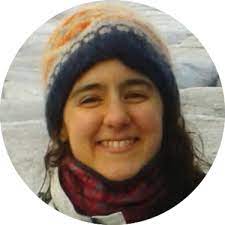
Dr Maria Luisa Sánchez Montes
Post-Doctoral Researcher
Email: M.Sanchez-Montes@uea.ac.uk
Biography
I am a climate and environmental scientist specialised in biogeochemical and geochemical analyses. In Prof. Thomas Mock’s lab I will be conducing modern sea-ice culturing experiments to understanding their chemical fingerprints (highly branched isoprenoids (HBIs) and HBI-specific stable isotopes) and use them for novel past sea-ice dynamic assessment. This project is done in collaboration with the University of Plymouth and funded by the Leverhulme Trust.
Before joining Thomas’ lab, I was a Researcher at Durham University reconstructing past climates and environments at different locations around the globe. In 2018 I was awarded a PhD in ice sheet-ocean-climate interactions from Durham University, UK. My PhD focussed on lipid biomarker and stable isotope analyses of marine sediments from the Integrated Ocean Drilling Program (IODP) Expedition 341 to the Gulf of Alaska to understand the onset and evolution of the Cordilleran Ice Sheet and associated mechanisms of glaciation.
Selected Publications
Sánchez-Montes, M. L., McClymont, E. L., Lloyd, J. M., Müller, J., Cowan, E. A., and Zorzi, C.: Late Pliocene Cordilleran Ice Sheet development with warm Northeast Pacific sea surface temperatures, Climate Past Discussions, https://doi.org/10.5194/cp-2019-29
Dr. Maria Luisa Sánchez Montes currently works as a PostDoc at the University of Colorado Boulder (USA) in the Institute for Arctic and Alpine Research.
Dr Irina Grouneva
Post-Doctoral Researcher
Email: I.Grouneva@uea.ac.uk
Biography
Diatoms have been the main focus of my research for more than ten years. My areas of expertise are physiology, proteomics and molecular biology. I obtained my PhD in Biology at the University of Leipzig, Germany in 2009 and went on to work as a postdoc in the group of Prof. Eva-Mari Aro at the University of Turku, Finland for six years. I moved to Norwich in April 2016 to start work on an exciting new project on gene editing of the ice diatom Fragilariopsis cylindrus in the lab of Professor Thomas Mock at the University of East Anglia (UEA). The objective is to establish the recently developed CRISPR/Cas-mediated gene editing tool in this diatom species. The novelty of this approach lies with the possibility to generate complete knockouts for specific target genes, something that has not been possible in diatoms previously. F. cylindrus is the first fully sequenced psychrophilic eukaryote and can therefore provide invaluable insights into cold-adaptation of eukaryotic photosynthesis.
Research Interests
Diatoms, photosynthesis regulation, light harvesting, proteomics.
Currently, Irina is Lab Study Co-ordinator at University of Sheffield
Dr Andrew Curson
Senior Research Associate
I obtained my undergraduate degree in Molecular Biology and Genetics at the University of East Anglia. During my degree, I became interested in molecular microbiology and did my PhD on the molecular genetic aspects of iron uptake in the nitrogen-fixing bacterium Rhizobium leguminosarum, in Professor Andrew (Andy) Johnston's group in the School of Biological Sciences at the University of East Anglia. Since completing my PhD, my post-doctoral research has been focussed on the molecular and biochemical analysis of the genes and proteins involved in the bacterial catabolism of dimethylsulphoniopropionate (DMSP) and production of dimethyl sulphide (DMS). DMS is an influential marine gas, with a key role in the marine sulphur cycle and potentially in climate control, through its effect on cloud formation. My current project, working in the groups of Dr Jonathan Todd and Professor Thomas Mock, is to investigate the pathway for DMSP synthesis in marine diatoms. This should allow us to identify the genes required for DMSP synthesis and the function of DMSP in this important group of marine phytoplankton, and possibly in other DMSP-producing organisms.
Currently, Andrew is a Senior Research Associate in the School of Biology at UEA.
Dr Amy Kirkham
Post Doctoral Researcher
Biography
I obtained my degree in Biological Sciences at the University of Exeter, and my Ph.D., investigating the distribution and diversity of eukaryotic picophytoplankton using molecular techniques, at the University of Warwick (Group of Prof. David Scanlan). I have since worked, as a post-doctoral researcher, on the application of molecular techniques to DNA preserved in sediments, in order to characterise historic lake communities. Following this work, I was eager to move into the field of functional genetics. Understanding the genetic basis of diatoms' unique silica shell construction has great potential for explaining the evolutionary success of this hugely abundant and diverse group. Furthermore, this understanding may have significant application in nanotechnology. Knock-down of genes involved in making silica cell walls is expected to result in recognisable phenotypic differences between transformed and wild-type cell lines. Starting with a short-term EMBO fellowship in the laboratory of Dr. Angela Falciatore (Université Pierre et Marie Curie, Paris) to establish RNA interference mediated gene knock-down in Thalassiosira pseudonana, my project aims to characterise a suite of silica responsive genes whose function is currently unknown. This approach will reveal how these unique and intricate shell structures are formed..
Currently, Amy is a research technician (ERC funded) in the group of Dr. Laura Lehtovirta-Morley (UEA).
Simone Payne
PhD Student
Biography
I obtained a first class degree in Analytical Sciences from the University of Coventry. During these studies I concentrated on environmental and industrial chemistry. I am currently a second year PhD student at the University of East Anglia under the supervision of Dr Jonathan Todd and Professor Thomas Mock. My PhD project is focused on the application of molecular genetics and biochemistry to study enzymes known generically as "DMSP lyases" that exist within marine bacteria and the coccolithophore Emiliania huxleyi. These DMSP lyases function to cleave the abundant algal sulfonium osmolyte dimethylsulfoniopropionate (DMSP) generating the volitile dimethysulfide (DMS). The gaseous product of this reaction has important roles in the global sulfur cycle, chemoattraction in organisms ranging from bacteria to penguins and potentially in regulating both the local and global climate.
Currently, Dr. Simone Payne is a research technician at UEA.
Roya Vaezi
PhD Student
Before my PhD I obtained a BSc in Biochemistry and MRes in Systems & Synthetic Biology at Imperial College London, which sparked my interest in using a systematic rational approach to biological engineering in order to carry out projects with "real-world" applications. My PhD research, carried out at Rothamsted Research in collaboration with UEA under the supervision of Professor Johnathan Napier, Dr. Olga Sayanova (Rothamsted Research) and Professor Thomas Mock, is based on using such an approach combined with metabolic engineering to enhance the production of omega-3 polyunsaturated fatty acids in marine microbes, which are the primary producers of omega-3 fatty acids (FAs). Omega-3 FAs are vital to human health, and the project aims to find a sustainable way to produce a high level of these, along the way learning more about the molecular biology of diatoms and developing tools in which to work with them.
Currently, Dr. Vaezi is an Innovation Associate at IXC UK Limited
Matt Beckers
PhD Student
Biography
I have been interested in the field of Computational Biology since my degree in Applied Computer Science with Ecology, at the University of East Anglia. The degree included a third year project on simulating the evolution of a plant population. I followed this with a Masters in Computational Biology, which concluded with a project analysing the quality of automatic gene annotations. My PhD is focused on investigating the presense and evolutionary relationships of small RNAs within two different diatoms: Thalossiosira pseudonana & Fragilariopsis cylindrus, and a Coccolithophore, Emiliania huxelyi.
Research Interests
Small RNA Analysis; Microalgae genomics; Molecular evolution.
Currently, Matt is a Principle Data Scientist at Raytheon UK
Annemarie Eckes-Shephard
MSc Student
I obtained my Bachelors degree in Biological Sciences from the University of Heidelberg, Germany. During that time I did an exchange year to Canada, where I wrote my Bachelor thesis under supervision of Prof. Dr. Jonathan Newman (Canada) and Prof. Dr. Ursula Kummer (Germany). I created a mathematical model including the interactions between the fungus Neotyphodium coenophialum with the grass Schedonorus arundinaceus. With the help of the model, I worked on identifying costs and benefits of the fungus to know more about this mutualistic symbiosis.
I have always had a broad interest in system biology, biochemistry and also ecology, especially when it comes to interactions and feedbacks between the biotic and abiotic environment. In order to gain a more systematic and global viewpoint on interactions, I started my master degree in climate change at the University of East Anglia. This sparked my interest in studying the molecular biology of diatoms, which play a crucial role in the wider climate system. For my Masters thesis in the Mock-Lab, I will therefore try to make the method of ribosome profiling applicable to diatoms, in order to learn more about their adaptation to different environments by observing their gene regulation on a translational level.
Annemarie now works at The Genome Analysis Centre (TGAC) on the Norwich Research Park.
Annemarie Eckes-Shephard currently works as a PostDoc at Lund University (Sweden).
Dr Jan Strauss
Senior Research Associate
I obtained a German diploma degree in Biological Sciences (2008) from the University of Rostock, Germany, and a Ph.D. (2013) from the University of East Anglia (UEA), Norwich, UK, investigating the genome and transcriptome of the sea ice microalga Fragilariopsis cylindrus. During my studies I developed a high interest in the science at the interface of genetics and biological oceanography and my research interest is in the unique and diverse biology of globally important marine microalgae (phytoplankton). I am applying genomics-enabled tools (e.g. genome and transcriptome sequencing, RNA-seq, qRT-PCR, genetic transformation) in combination with biochemical approaches (e.g. Western blot, protein assays) to understand the biology of marine phytoplankton and elucidate the molecular underpinnings of their adaptation to marine environments. Since finishing my Ph.D., I have been working, as a research technician, on investigating the physiological role of the abundant sulfur compound dimethylsulfoniopropionate (DMSP) in marine phytoplankton. In my current research, as postdoctoral fellow at the School of Environmental Sciences at UEA Norwich, I am investigating the global significance of light-driven rhodopsin proton pumps in eukaryotic marine phytoplankton.
Research Interests
Marine genomics; environmental and functional genomics; adaptation to low temperature and nutrients; polar biology; biological oceanography.
Jan currently works as a Data Scientist at the German Maritime Centre.
Lewis Dunham
MSc Student
Developing a CRISPR-Cas system in diatoms for genetic engineering
As part of a larger team and in collaboration with Prof. Sophien Kamoun's team at The Sainsbury Laboratory, I will create a construct to allow development of a CRIPSR-Cas type II system for genetic engineering of the model diatom Thalassiosira pseudonana. CRISPR-Cas is a RNA-guided endonuclease system, which induces double strand breaks (DSB) in target DNA, allowing repair mechanisms that induce mutations (Non-homologous end joining) and gene exchange (HR) to be employed. It is a powerful system with applications across multiple fields.
Dr Barbara (Bobbie) Lyon
NSF Post-Doctoral Research Fellow
I obtained my Bachelor of Sciences degree at Arizona State University and afterwards worked for the U.S. National Ocean Services in Charleston, South Carolina, on a highly collaborative marine mammal health assessment project where I helped examine antibiotic resistance in bottlenose dolphin populations. When I returned to school to obtain my PhD in molecular and cellular biology in the Marine Biomedicine & Environmental Sciences program at the Medical University in South Carolina I began my studies on eukaryotic phytoplankton physiology. I obtained my degree in the labs of Drs. Jack DiTullio and Micheal Janech studying the sea-ice diatom Fragilariopsis cylindrus. Sea-ice algae thrive under extreme conditions, overcoming freezing temperatures that form internal ice crystals, shut-down metabolic activity, and create cell-wide oxidative stress in most organisms; but they also synthesize a sulfur compound, DMSP, that is believed to help mitigate cellular damage through its proposed antioxidant, antifreeze, and salt buffering properties. Other marine algae and salt tolerant plants also produce large amounts of this potentially important anti-stress compound which has more than 10 proposed physiologically functions. To date, the specific enzymes controlling DMSP synthesis remain unknown which prevents studies to determine the exact function(s) of DMSP production. To overcome this critical gap in knowledge protein changes associated with DMSP increases were examined in sea-ice algae and advanced protein identification techniques were used to identify candidate DMSP synthesis genes. Molecular genetic techniques are now being applied to confirm their role in DMSP synthesis and finally provide unequivocal evidence for the physiological functions of DMSP. Furthermore, algal DMSP production has global impacts on climate and biogeochemical cycles so understanding biological production is fundamental to understanding and predicting climate and biogeochemical cycles.
Bobbie is currently working at the Grice Marine Laboratory, Department of Biology, College of Charleston, South Carolina, USA.
Martin Jahn
Graduate Student Intern
Martin obtained his bachelor degree in Biological Sciences (majors: Microbiology, Ecology) at the University of Wuerzburg, Germany. In the context of my bachelor thesis I performed an immunological analysis of guttation fluid of Bacillus thuringiensis maize for the presence of Cry1Ab protein (Group of Prof. Steffan-Dewenter). During my masters I was involved in a NGS database project focusing on the transcriptional gene expression of the marine sponge associated candidate phylum Poribacteria (Group of Prof Hentschel Humeida). During my internship between September and December 2013 at the University of East Anglia (UEA) I worked with phytoplankton samples originating from a cruise to the Arctic Ocean. My aim was to isolate and identify different species out of these samples using methods for isolation like Single-Cell Isolation by Micropipette, Single Cell Sorting and Plating and methods for identification like 18srRNA sequencing, light microscopy and flow cytometry.
Research Interests
Bioinformatics; Microbial Ecology; Plant-Microbe Interactions
Currently, Martin is at Oxford University as a Postdoctoral Researcher in the Foster lab.
Lian Ma
Visiting Professor
Lian worked on establishing a protocol for chromatin immunoprecipitation (ChIP) in the marine diatom Thalassiosira pseudonana and other diatoms.
Professor Lian Ma, College of Life Science, Yangtze University, 88 Jingmi Road, Jingzhou, Hubei, P. R. China.
Piotrek Bentkowski
PhD Student
Biography
Before coming to UEA I studied and later worked as a research assistant in the Faculty of Biology at the University of Warsaw, Poland; where I looked at how the environment influences the behaviour and life history of fresh water zooplankton via, physiological pathways, using Daphnia as a model organism. During my undergraduate studies I became interested in hardcore theoretical ecology and later simultaneously studied biology and Computational Methods of Physics in the Faculty of Physics, UW, Polnad.
As a Ph.D. student in the School of Environmental Sciences, University of East Anglia; I looked into how to build simple and fast, yet representative models of the genetic evolution of the prokaryotes. Previously I was focused on the problem of genome streamlining.
I used to be a member of The Earth System Modelling Group led by Professor Tim Lenton; and work with Professor Thomas Mock.
Currently I work at the University of Warsaw, Poland.
Research Interests
Theoretical fundamentals of evolution; impact of the biosphere on earth systems; linking theoretical and experimental ecology; pray-predator interactions; mathematical models as way to discover the world.
Currently, Dr. Bentkowski is a Research Fellow at the University of Warsaw, Poland.
Rachel Hipkin
PhD Student
I became interested in the application of genomics to investigate the marine environment during my undergraduate degree in Marine Biology with Oceanography at the National Oceanography Centre (NOC), University of Southampton. I went on to continue with my studies at the NOC carrying out a Masters of Research studying the functional role of Phosphoenolpyruvate carboxykinase in the coccolithophorid Emiliania huxleyi. Once completed I worked as a technician within the Plant Membrane Transporters lab of Lorraine Williams, University of Southampton supporting molecular work involved in the EU funded PHIME (Public health impact of long-term, low-level mixed element exposure in susceptible population strata) project. Using cloning methods I worked analysing the role of heavy metal transporters of Barley.
I am previously investigated the role of an unknown DNA binding protein in T. pseudonana potentially involved in growth. I utilised overexpression mutants of T. Pseudonana and analysed whole genome expression to identify gene networks associated to this unknown protein.
Biogeochemical cycling in the ocean; Algal genomics and proteomics; Gene networks; Developing molecular tools with diatoms
Currently, Dr. Hipkin is senior strategic account manager at Oxford Nanopore Technologies.
Chloe Turner
Undergraduate Student
I am an undergraduate student at the University of East Anglia studying Environmental Sciences and am currently doing my dissertation under the supervision of Professor Thomas Mock. For this, I am looking at cadmium toxicity on different strains of the diatom Phaeodactylum Tricornutum. I am enjoying getting to know more about the species, as well as working and observing the research in the laboratory and learning more about such an important group like diatoms in general.
Clara Martinez Perez
Erasmus Student
I am an Erasmus student from the Universidad Autonoma de Madrid (UAM), Spain, studying my final year of Undergraduate in Biology at UEA. My experience in a summer program at the Microbial Ecology laboratory at the Centre of Advanced studies in Blanes (CEAB, CSIC), Spain, where I worked in microbial biodiversity in alpine lakes, encouraged me to do my final year project in marine microbiology. My project is a side project to Jan Strauss PhD thesis, in which I am studying the distribution of the bacteria-like rodopsin gene found in Fragilariopsis cylindrus in marine eukaryotic phytoplankton.
Currently, Dr. Martinez Perez is Postdoctoral Researcher at ETH in Zuerich, Switzerland.

Shiri Graff van Creveld
Visiting PhD Student (EMBO Short-term fellowship) from Weizmann Institute of Science, Vardi Group, Israel
Email: shiri.graff@weizmann.ac.il
Biography
After graduating in molecular biochemistry in the Technion (Israel Institute of Technology) my love to the sea drove me to peruse an MSc, and then a PhD studying marine diatoms in the lab of Assaf Vardi’s at the Weizmann Institute of Science (Israel).
I am interesting in diatom’s response to stress, how they perceive and response to the ever-changing marine environment. In particular, I am studying the role of redox in cell fate regulation in marine diatom’s response to environmental stresses. I received a short-term-EMBO fellowship to come to the lab Professor Thomas Mock at the University of East Anglia, in order to adapt the CRISPR/Cas9 tool for gene editing in the model diatom Phaeodactylum.
Research Interests
Programmed cell death, stress response, redox signaling, functional genetics; marine microbiology; diatoms; protein structure-function.
Shiri currently is a PostDoc in the group of Ginger Armbrust, Seattle, USA
Xuewei Mao
Ph.D. Student (CSC Fellowship)
Email: Xuewei.Mao@uea.ac.uk
Primary Supervisor: Prof. Thomas Mock
Secondary Supervisor: Prof. Cock van Oosterhout
External Joint Supervisors:
Huan Zhang (University of Connecticut)
Guangxing Liu (Ocean University of China)
Yunyun Zhuang (Ocean University of China)
Biography
I graduated from Ocean University of China (OUC) with a Bachelor's and Master’s degree. During my graduate study, I have conducted research on the effects of ocean acidification on the growth of two diatom species Phaeodactylum tricornutum and Chaetoceros curvisetus. In 2016, I started my PhD at OUC, majoring in environmental sciences. I mainly focus on understanding the molecular mechanisms on harmful algae and their strategies to cope with eutrophication and climate change. In 2018, I have been awarded a scholarship from the China Scholarship Council (CSC) to pursue my research in the lab of Thomas Mock in collaboration with Yunyun Zhuang from OUC. I will apply molecular methods (e.g. RNAseq, RT-qPCR, CRISPR/Cas mediated genome editing) to investigate nitrogen uptake and assimilation in the dinoflagellate species Alexandrium pacificum.
Research Interests
Molecular Ecology of Phytoplankton, Harmful Algal Blooms, Dinoflagellates, Algal Transcriptomics, Genome Editing
Xuewei has gone back to OUC for pursuing PostDoc work.

Dr Krisztina Sarkozi
Post-Doctoral Researcher
Email: k.sarkozi@uea.ac.uk
Biography
Driven by my interest in the environment, I completed a degree in Biology and Chemistry followed by a Master’s degree in Ecology at the University of Oradea in Romania. After spending seven years in Romania’s educational system, I have embarked upon a PhD in marine environmental genetics at the UEA. My research project focused on identifying the molecular underpinnings of bloom formation in marine diatoms. I combined genomics, biochemical and bioinformatics approaches with the aim of elucidating the genomic binding sites of cell-cycle regulatory proteins with emphasis on a DNA-binding protein, which appears to induce fast growth in the diatom Thalassiosira pseudonana and other centric diatoms. After completing my PhD, I did a PostDoc focusing on metabolic engineering of diatoms including the synthesis of high-value lipids such as omega-3 long chain fatty acids.
Research Interests
Algal genomics, proteomics, ecology, bioinformatics
Krisztina has moved to Oxford University to continue as a Senior Postdoctoral Researcher in the group of Ros Rickaby in collaboration with Dmitry Filatov.
Kara Martin
PhD Student
Email: K.Martin@uea.ac.uk
Primary Supervisor: Professor Vincent Moulton (School of Computing)
Secondary Supervisor: Professor Thomas Mock
Dr Richard Leggett (The Genome Analysis Centre)
Biography
Bioinformatics approaches for assessing the impact of temperature on eukaryotic phytoplankton
I graduated from the University College Dublin (UCD) with a degree in Science, majoring in Microbiology in 2011. My final year project was 'Investigating the role of sigma factor in physiology of Rhodococcus equi.' I then went to pursue a masters and graduated with a MSc. in Bioinformatics from University of Leicester in 2012. My final year project for my masters was 'In silico mining for microsatellites'. I gained research experience in bioinformatics at the National Institute for Cellular Biotechnology (NICB). The role involved statistical analysis of microarray data generated from colorectal cancer samples conducted within the R/Bioconductor software environment.
Latest paper: Martin et al. 2021, Nat. Comms.


